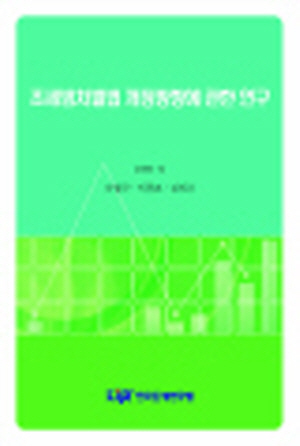Reform Proposal for Tax Evaders Punishment Act
- Keyword
- 탈세, 구성요건, 전속고발주의, 통고처분, 탈세, 구성요건, 통고처분, 전속고발주의
- Title
- Reform Proposal for Tax Evaders Punishment Act
조세범처벌법 개정방향에 관한 연구
- Authors
- Young Keun Oh; Joong-Kyo Lee; and Jin Soo Kim; 오영근; 이중교; 김진수; Joong-Kyo Lee; Young Keun Oh; and Jin Soo Kim
- Issue Date
- 2008-12-01
2008-12-01
- Publisher
- KIPF
KIPF
- Page
- pp. 229
pp. 229
- Abstract
- It is important not only to prevent tax evasions, to find out the situations of evading taxes and to collect taxes in arrears, but also to reduce the possibility of tax evading and punish the criminals strictly. Without analysis of causes of tax evading and effective punishment of tax criminals, the possibility of repetition of tax evading cannot be reduced.
The tax crime regarding tax evasion is regulated by Tax Evaders Punishment Act(TEPA) in Korea. The TEPA was formulated in 1951 and until now, the main structure has been sustained despite several partial amendments. During more than half a century, while theories of law and social consensus have changed greatly, the TEPA has not reflected these changes enough in the act itself. Therefore, this discrepancy causes various problems in theoretical and practical fields. To be effective in criminal law, the legislation of the code should be generous; on the other hand the execution should be strict. However, the current TEPA causes the opposite situations that law itself is strict but the execution is generous. Besides this act contains some provisions which seem to be unconstitutional because of its vague and overbroad texts.
On the basis of these backgrounds, this report analyzes the substantial and procedural problems in the current TEPA and suggests the amendment proposal. First, this report reviews "joint penalty," "concurrent imposition of imprisonment and fine," and "confiscation" in Chapter I General provisions, mainly focusing on "partial exclusion from application of Criminal Act." In addition, this report examines whether "partial exclusion from application of general provision" in the TEPA, which plays a role as a special law of the criminal law, is accepted; furthermore, represents to what extents of this partial exclusion, if accepted.
Second, this report examines whether the elements of the criminal act in "Chapter II Offenses" are accurate; whether there are provisions which should not be criminal owing to no practical use; and whether the TEPA omits any necessary rule. Through above examination, this report reorganizes this chapter for the purpose of making the elements more accurate and making the punishment more effective. Besides we analyze whether statutory punishment of each tax crime is established reasonably and suggest the methods of making the punishment more effective. Next we make a suggestion of reordering crimes in the texts according to the scope and gravity of the crimes, which is to set an order from tax evasions to violation of order offenses and from high statutory punishments to low ones in order to make the TEPA more systematical in the text.
Third, this report deals with "article 6 complaint rule" in Chapter I General provisions and notification disposition in Chapter II Offenses provisions. Most tax crimes should be prosecuted on complaints by tax officials, and this report reviews the reasonableness of this procedural requirements and if the current prescription of a public prosecution is appropriate considering the sophisticated forms of tax crimes and the difficulty of discovering tax evasion.
탈세를 방지하고 탈세 현장을 포착하고 누락된 세금을 추징하는 것 못지않게 탈세를 미연에 예방하고 범죄자를 엄중히 처벌하는 것은 매우 중요하다. 왜냐하면 탈세의 원인 분석과 사후 처벌이 효과적으로 이루어지지 않게 되면 탈세가 반복될 소지가 크기 때문이다.
우리나라는 탈세와 관련한 조세범죄를 조세범처벌법에 규정하여 처벌하고 있다. 조세범처벌법은 1951년에 제정된 것으로서 지금까지 몇 차례 일부개정을 거친 것 이외에 주요 구조는 제정 당시의 틀을 그대로 유지해 오고 있다. 반세기가 넘는 기간이 흐르면서 제정 당시의 법이론과 사회통념이 크게 변화한 반면에 조세범처벌법은 이러한 변화를 제때 반영하지 못하여 다양한 이론상?실무상 문제점들을 양산하고 있다. 형벌이 실효성을 거두기 위해서는 형벌규정은 관대해야 하지만 집행은 엄격하게 해야 할 것이나, 현행 우리나라의 조세범처벌법은 이와 정반대로 ‘입법은 엄격하게, 집행은 관대하게’라는 현상을 야기하고 있으며, 죄형법정주의의 명확성 원칙에 위반될 가능성이 높은 규정들을 포함하고 있다.
이러한 문제의식에 기초하여 본 보고서는 현행 조세범처벌법의 실체법적?절차법적 문제점을 분석하고 개정방향을 모색하였다. 첫째, ‘총칙’ 장에 규정되어 있는 형법 적용의 일부배제 규정을 중심으로 양벌규정, 징역형?벌금형의 임의적 병과 규정, 몰수규정을 함께 검토하고 있다. 특별형법으로서 기능하고 있는 조세범처벌법상 형법총칙의 일부배제 조항이 타당한지를 검토하여 형법총칙 일부배제 인정여부와 인정한다면 어느 정도의 범위에서 인정할 것인지에 대해 바람직한 방안을 제시하고 있다.
둘째, ‘범칙행위’ 장에 규정된 구성요건이 명확성 원칙에 따라 규정되어 있는지, 처벌의 실익이 없어 비범죄화 해야 할 규정은 없는지, 처벌할 필요가 있는데 흠결된 규정이 없는지를 개별 조세범죄 유형을 바탕으로 검토하여 보다 명확한 구성요건을 설정하고 처벌의 실효성을 담보할 수 있도록 ‘범죄행위’ 장을 재분류하고 있다. 아울러 개별 조세범죄의 법정형이 합리적으로 설정되었는지를 검토하여 처벌의 실효성을 확보할 수 있는 방안을 마련하고 있다. 다음으로 조세범처벌법의 체계적 정비를 위하여 조세범죄의 배열을 탈세범에서 조세질서범, 법정형이 높은 범죄에서 낮은 범죄 순으로 재배열하는 방안을 제시하고 있다.
셋째, ‘총칙’ 장의 전속고발주의와 ‘범칙행위’ 장의 통고처분 규정을 검토하고 있다. 대부분의 조세범죄는 세무공무원의 고발이 있어야 기소할 수 있는데, 이러한 소송조건이 합리적인지 또한 조세범죄의 지능화와 발각의 어려움을 감안하여 현행 공소시효가 적정하게 규정되어 있는지를 검토하고 있다.
- Keywords
- 탈세, 구성요건, 전속고발주의, 통고처분, 탈세, 구성요건, 통고처분, 전속고발주의
